Among the elated millions when Steve Waugh notched his famous last-ball ton at the Sydney Cricket Ground in January 2003 was a man who, while getting ready for surgery in his hospital bed, got so excited that an eyeball popped out of his noggin.
He was one of the many who had spurred Waugh on as he fought to save his Test career over the course of about 14 months, battling away in the face of relentless pressure from selectors, the media, past players and himself.
In the final Test before Australia's home 2002-03 Ashes campaign, Waugh had led his side to a sixth series whitewash under his captaincy, against Pakistan in Sharjah in October. Australia's inspirational leader then skippered his team to Ashes glory inside just 11 days, with the third victory giving him his 32nd win as Test captain, equalling Allan Border's Australian record.
READ MORE: Stokes bites on captaincy as Root faces fire
READ MORE: Cricket boss struck down amid Ashes chaos
READ MORE: Test star in line for unlikely NRL return
But on the eve of the fifth Test of the Ashes series, as Waugh sweated his way through a net session at the SCG, he knew that a lean run with the bat could only be shielded by the team's dominance for so long.
Waugh was 37 and, as he charged down the steps of the Members Pavilion to face England's attack on the second day of the SCG match, he'd scored just one ton from his last 23 Test innings. In that period, he had made 645 Test runs at 29.31, including innings of seven, 12, 34, 53, 77 and 14 during the Ashes. If his knock of 77 in the first innings of the Boxing Day Test had bought him any more time in the baggy green, what he'd gained had dissipated in an innings of 14 in Australia's second dig, in which he was tormented by England quicks Steve Harmison and Andy Caddick.
Australia's selection panel, chaired by Trevor Hohns, had hinted at phasing Waugh out of the national set-up when it axed him as captain of the one-day side in favour of Ricky Ponting, in February 2002.
The panel gave another perilous glimpse into its views on an ageing and struggling Waugh when, a day after Australia won the third Test of the Ashes to seal the series, it didn't pick him in a 30-man squad for the 2003 World Cup.
"The decision is entirely Stephen's at this stage," Hohns said of Waugh's retirement prospects ahead of the Boxing Day Test, his last three words intensifying the firestorm.
At a media conference held under the Bradman Stand at the SCG ahead of the final Test, one journalist asked Waugh a heavily loaded question.
"What's been the most defining moment in your career?" the reporter asked, suggesting the SCG Test would be Waugh's last.
"Well, perhaps it will happen in this game," Waugh quipped in a brilliant reply.
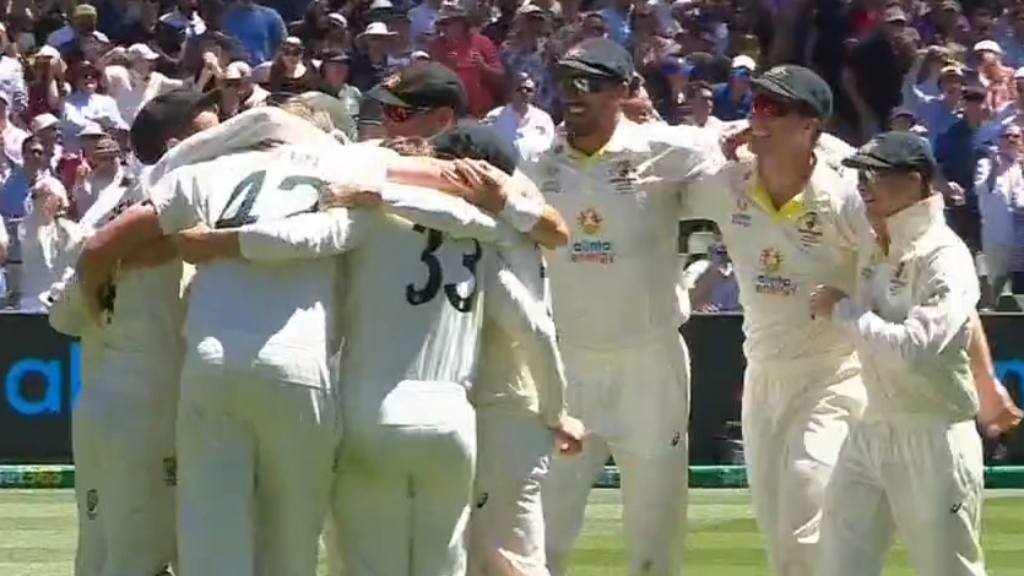
Adding to the sense of finality was not only that the SCG was Waugh's home venue, but that his 156th Test would draw him level with Border's world record. The tenacious right-hander was also just one century away from joining Sir Donald Bradman on 29 Test tons, the Australian record at the time.
But as Waugh hurtled onto a sun-bathed SCG teeming with 41,931 onlookers, the ground's biggest second-day attendance since 1975, he had no interest in packing away his baggy green for a final time after that match.
The clock atop the Members Pavilion read 3.26pm when Waugh strode across the hallowed turf to begin his innings. Just over three hours later, as the clock read 6.46, millions of people in Australia and abroad, including the man set to undergo eye surgery, were gripped by Waugh as he got ready for the final ball of the day, sitting on 98.
Over the three-and-a-bit hours until that point, 'Tugga' had survived a barrage of vicious short-pitched deliveries from Harmison and Caddick, peeled off 17 fours and become just the third cricketer in history to reach 10,000 Test runs, joining Border and Indian legend Sunil Gavaskar. Damien Martyn and Martin Love had batted with him and departed, and Adam Gilchrist now watched on from the other end of the pitch.
Waugh had one ball, against the off spin of England's Richard Dawson, to find two runs before stumps.
Dawson skipped in, sent a quicker-than-usual delivery fizzing down the wicket and pitched it fractionally wide.
And, in a moment so synonymous with the iconic Moore Park venue that is the SCG, Waugh shuffled at the crease and threw his hands at the ball, sending the Kookaburra zipping through extra cover for four.
Ecstatic drunks sent pubs into delirium, many listening on car radio blasted their horns and the sea of thousands at the SCG let out a roar that made Sydney's railway network tremble, as Stephen Rodger Waugh celebrated a career-saving century.
Waugh has been told hundreds of stories of what people were doing when he reached triple figures in that incredible moment.
The story of an eyeball popping out of a man's head is told in a new book called If These Walls Could Talk: A Celebration of the Sydney Cricket Ground, authored by Sydney Morning Herald chief sports writer Andrew Webster.
"One guy who was in hospital, hooked up to all this equipment, was about to have an operation," Waugh recalls in the book.
"He got so excited when I got the hundred that he jumped up in the air, ripped the connections out … and detached a retina. He was in there for an operation and wasn't supposed to move around but he forgot about it and got caught up in the moment. He had to have another operation."
Waugh was dismissed in the first over of the next day's play and England won the Test by 225 runs but, as Webster puts it in his book, those are "minor details".
Webster relived in an interview with Wide World of Sports the palpable interest in Waugh's SCG innings.
"The whole country was locked in," Webster recalls.
"That was one of the events I was lucky to be at and you knew you were watching something special. I remember being there that day – and it sort of crept up on everybody. Everyone knew what was on the line; everyone knew he was batting for his career. All of a sudden, you go, 'Jesus Christ, he's going to do this here'.
"The Nine News got delayed, which was a rarity in those days.
"And Steve Waugh not only got his ton but saved his career and broke a stack of records along the way.
"That moment was the genesis of this entire book."
Waugh had long been renowned for his remarkable grit, perhaps best typified by his twin centuries at Old Trafford that changed the course of the 1997 Ashes dramatically.
Many doubted if he still had the ability to produce an against-all-odds ton when he took guard on centre stump at the SCG in January 2003 – but he would again rise to the challenge.
"I love sportspeople like that," Webster says.
"Lleyton Hewitt used to be the same … I always find it intriguing. Lleyton Hewitt – he'd drop the first two sets and it was almost like it would fire him up to win the next three.
"And 'Tugga' was always the same. He was always so dependable.
"But things had started to slip. Even by his own admission, things had started to slip with his form. His lack of runs was telling. He'd lost the one-day captaincy and his position in the team altogether. That was telling. So, he was on his way out.
"But that was the perfect situation for Steve Waugh to make a hundred.
"He loved a fight."
For a daily dose of the best of the breaking news and exclusive content from Wide World of Sports, subscribe to our newsletter by clicking here!
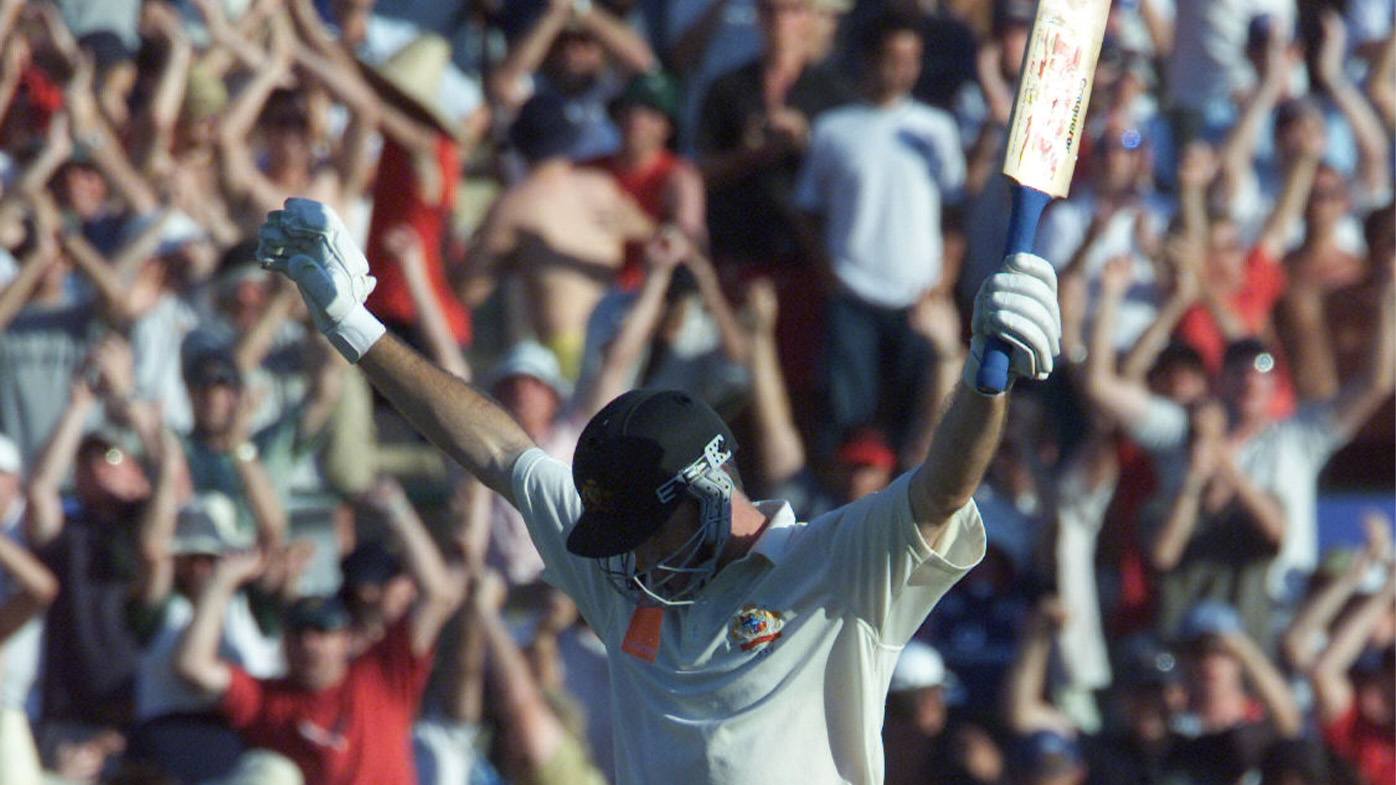
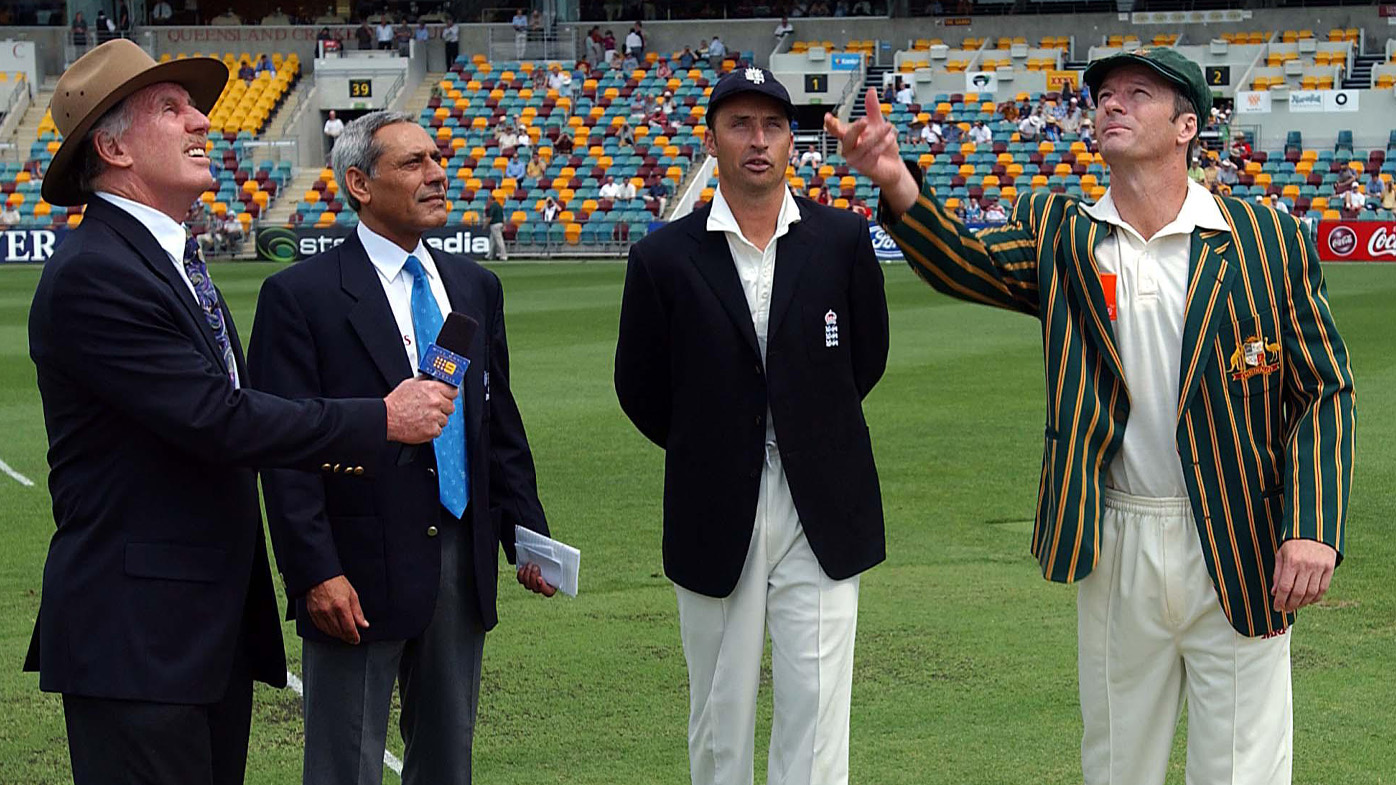
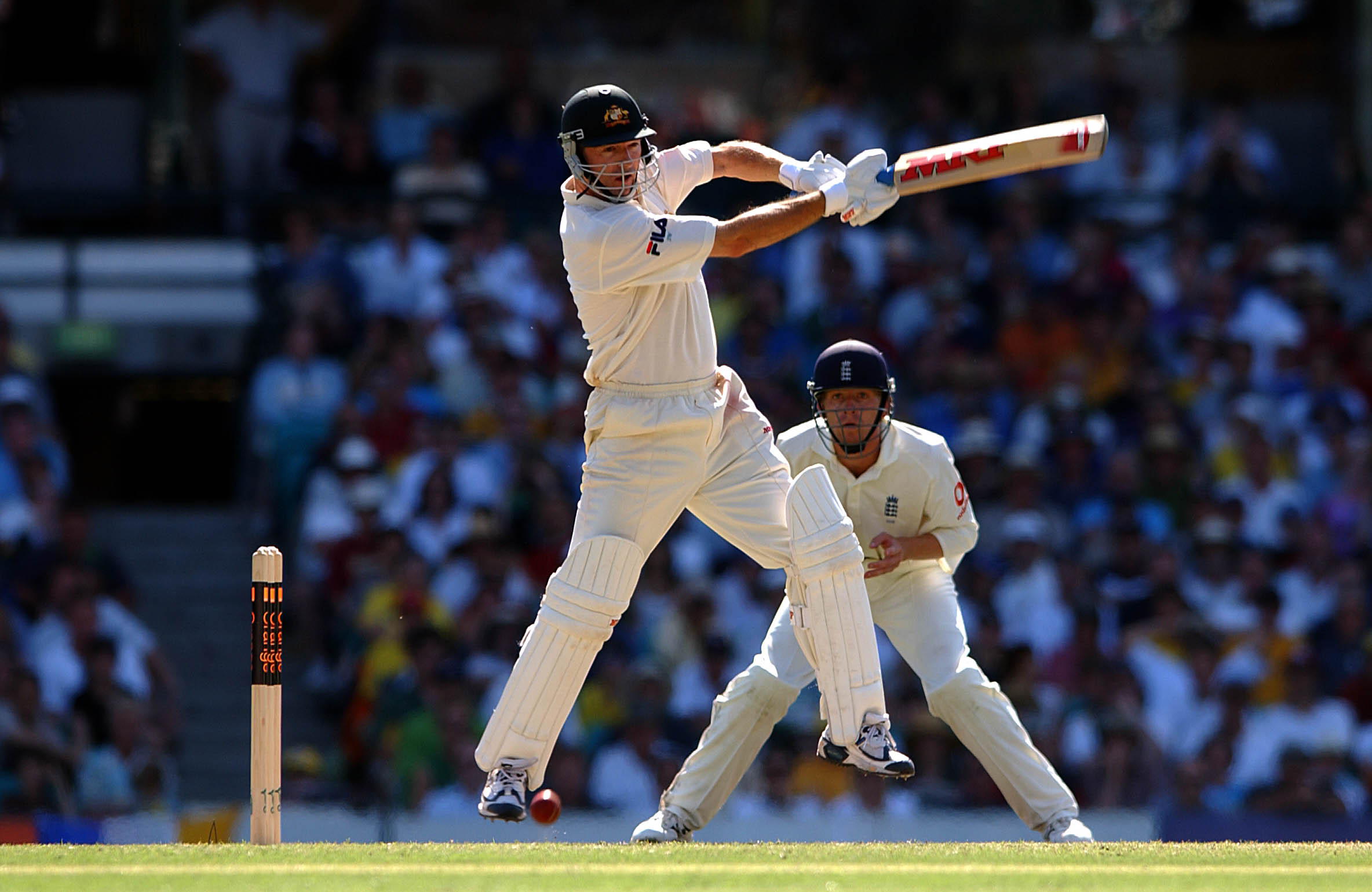
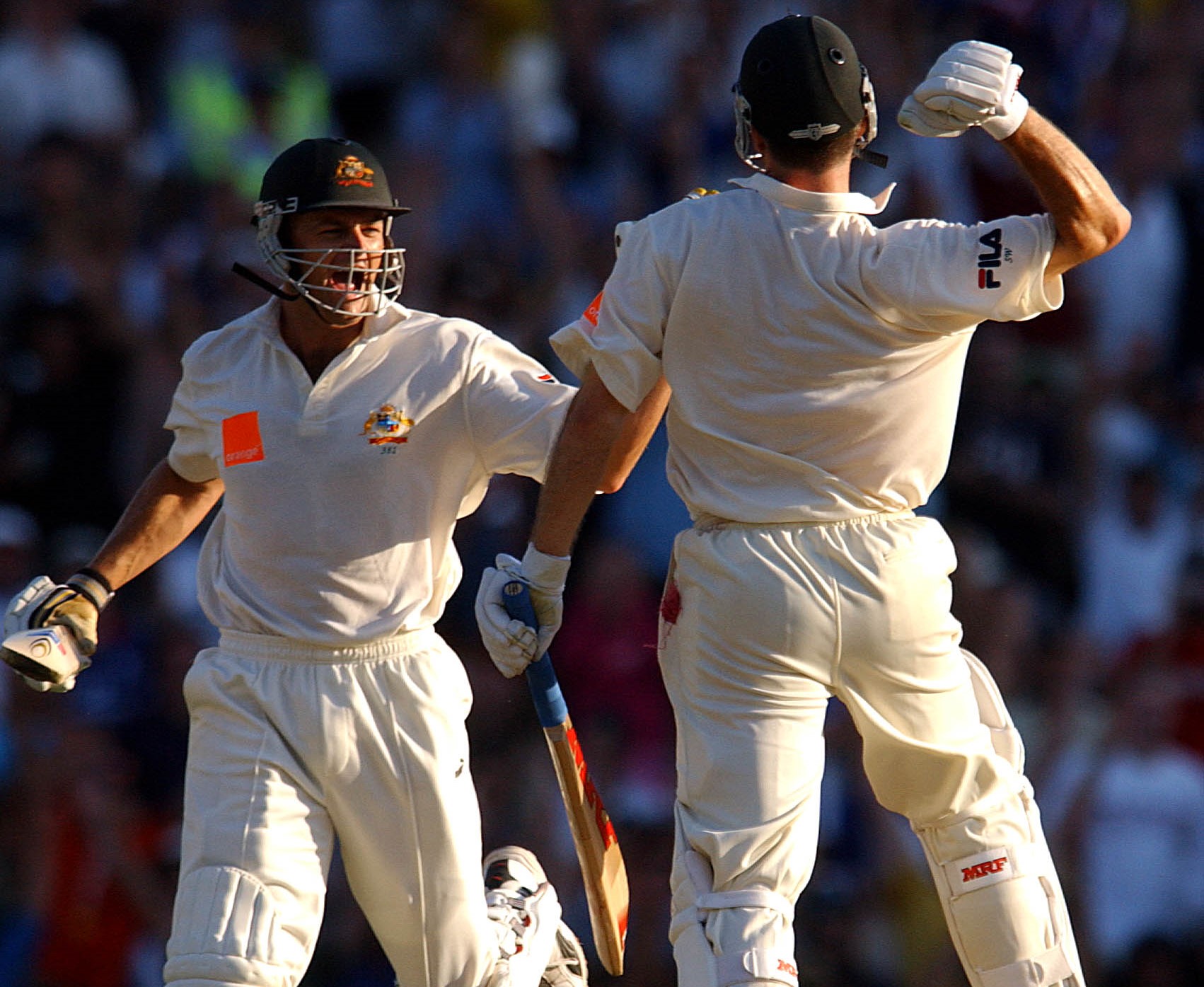

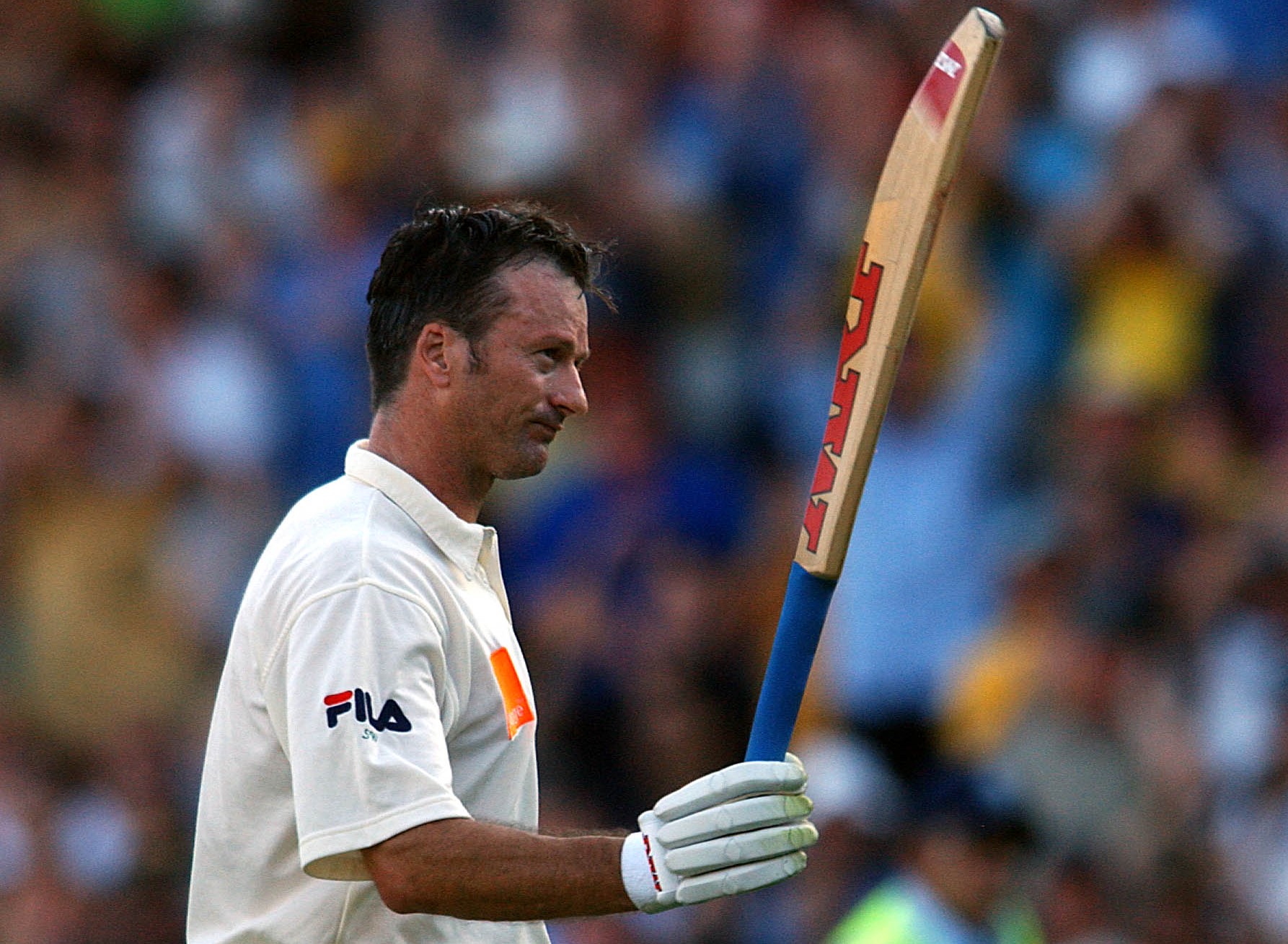
Leave a Reply
You must be logged in to post a comment.